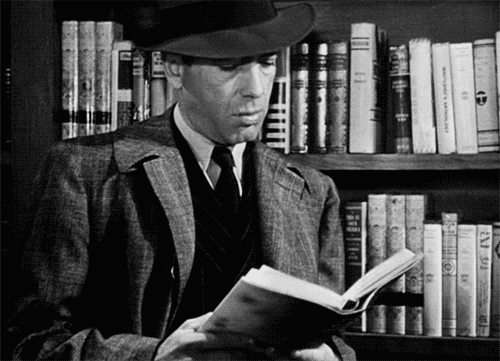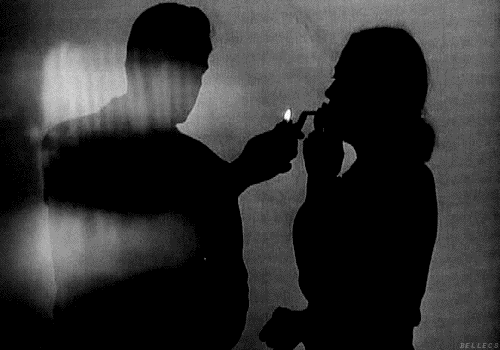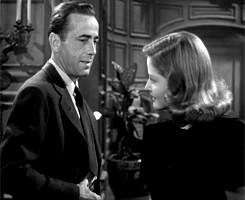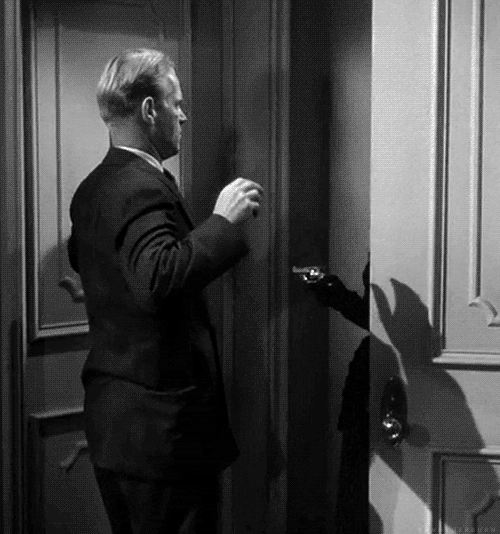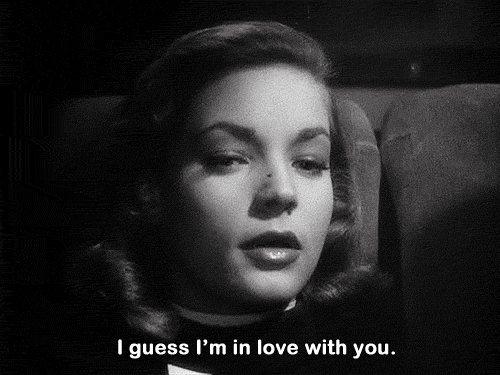Last weekend I watched Silver Linings Playbook for the second time. I saw it in theaters in December, and this was my first time seeing it after Jennifer Lawrence won an Oscar for her portrayal of Tiffany Maxwell in the film.
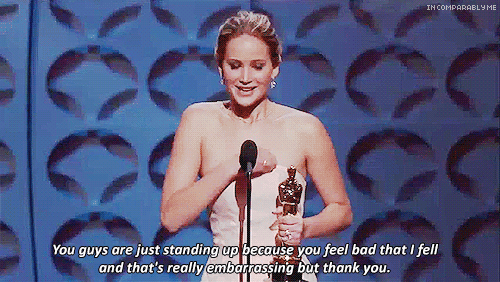
So David O. Russell is a well known writer/director, having been nominated for Best Directing for 2010’s The Fighter. He originally wanted the leading roles of the film to be Zooey Deschanel and Vince Vaughn, and later switched to Mark Wahlberg, and then finally settled on Bradley Cooper to play the lead, Pat Solitano. For Tiffany, he cast Anne Hathaway, and then lost her to The Dark Knight Rises. He auditioned a myriad of women, everyone from Kirsten Dunst to Angelina Jolie. He agreed to allow Jennifer Lawrence (who was 21 at the time) to audition, but knew he wasn’t going to give it to her because Bradley Cooper was 37 and thought it would be weird. After seeing her audition he realized she was the right one for the role.
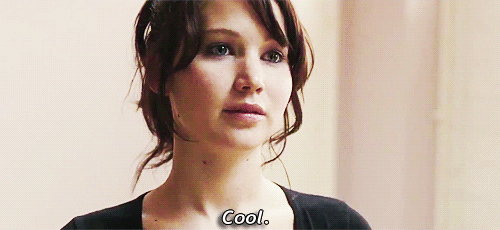
The movie is a romantic comedy-drama, telling the story of how two people who are considered mentally “messed up” fall in love. Pat is released from a court ordered mental hospital sentence in the opening scene, which funnily enough was in Baltimore. The words “I don’t want to go back to Baltimore” were in the film several times, and made me laugh because I know the feeling.
But Pat lives in Delaware County, Pennsylvania (another place I have lived), and moves in with his mom (Jacki Weaver) and his dad (Robert De Niro) at the start of the film. We find out from some therapy sessions that Pat came home to find his wife in the shower with another man, a school teacher the two of them both worked with. He beat the man almost to death, got arrested, and got a restraining order from his wife.
Even if Pat’s life seems a little miserable at the start, he is actually the most positive in the film. He maintains this outlook:
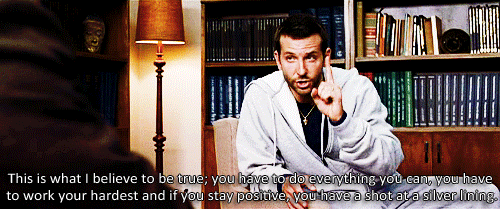
I found Pat’s positive outlook to be misguided though. What Pat wants more than anything is his wife back, and he believes that impressing her and fixing all of what she considered to be his flaws is how he will be happy and win her back. That’s why the character of Tiffany is exactly what Pat needs in his life.
Tiffany is a recent widow whose husband died being hit by a car. We never find out her age but if I had to guess I would say mid 20s. Her sister (Julia Stiles) throws a dinner party for Pat and invites Tiffany, and the two certainly don’t hit it off. But when Pat’s therapist suggests he can impress his wife by helping Tiffany, Pat agrees to commit to performing with Tiffany in a dance competition she entered.
The secret to the film is that everyone is secretly messed up. Pat’s dad has undiagnosed OCD, which manifests itself in how he watches Eagles games, by demanding specific details to be in order such as where the remotes are placed and who sits where. Pat’s best friend unknowingly hates his marriage and thinks making his wife happy will make him happy. It seems Pat and Tiffany are the only ones who have it figured out MOST of the time.
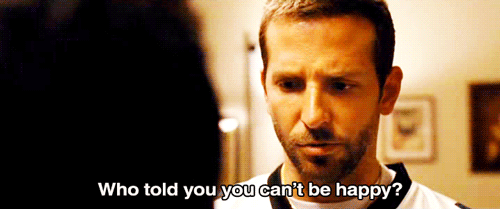
But as interesting as the storyline is, it refuses to break out of the romantic comedy formula, which I found to be its biggest flaw. Boy meets girl, they butt heads, a connection through some external force brings them together (with a montage sequence showing them falling in love), boy breaks girl’s heart through a misunderstanding, boy chases after girl, boy delivers this line to win her back:
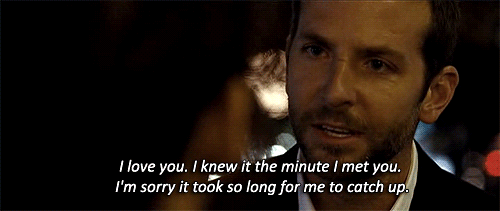
And they live happily ever after. For a film that pushes boundaries in terms of what our society thinks about mental disorders, it certainly is cautious about pushing boundaries in terms of the “normal” love story.
However, I can’t hate on the film for being cliché, because Jennifer Lawrence and Bradley Cooper’s chemistry is so emotional and electrifying that you’re laughing and crying in every one of their conversations. 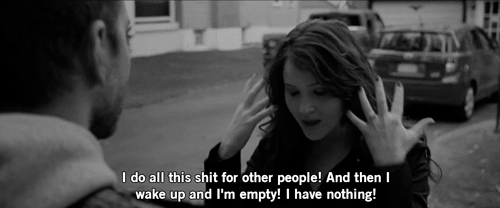

The film definitely tests our theories about what makes us happy and how much of that is our own doing. And in that way it succeeds in its goal, and I can see why it got all the praise it did.
